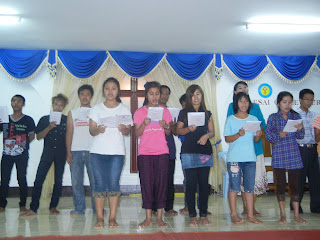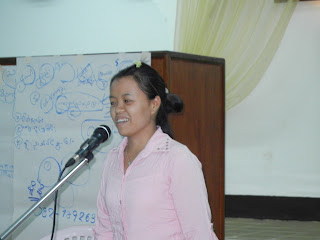SALEM, Mass. (RNS)—When America's first ordained missionaries sailed to
India 200 years ago, they kicked off a movement to spread the faith and
created America's most potent export—Christianity.

Adoniram Judson and four other missionaries are ordained as America's first missionaries.
|
That's
the message that will reverberate across nine "Judson 200"
commemorative events, running Feb. 5-20 in and around Salem.
Speakers—evangelicals, mainline Protestants and scholars—will recall how
the course of history changed with Adoniram Judson and four other
missionaries.
Religious liberals and conservatives, who both lay
claim to Judson's legacy, will hold separate events. One includes
unveiling a new name to reflect the recent merger of two evangelical
mission societies, CrossGlobal Link and The Mission Exchange,
representing 35,000 missionaries.
But participants will embrace a shared heritage as exporters of American ideas and weigh its modern-day implications.
"The
essential idea (in foreign missions) is that a person born in Pakistan
is every bit as human and to be valued as much as a person born in North
America or England," said
Rodney Petersen,
executive director of the Boston Theological Institute, a consortium of
nine theological schools. "That was the message carried around the
world."
Judson's 1812 departure with his wife, Ann Hasseltine, marked the start of a new era of American and Christian influence.
To
support them, the first of many missionary-sending agencies was
born—the American Board of Commissioners for Foreign Missions. Similar
organizations soon took root, sending thousands of missionaries to all
corners of the globe. By the mid-20th century, America was sending more
missionaries than any other country.
America still sends the most: 127,000 of the 400,000 foreign missionaries sent in 2010 came from America, according to the
Center for the Study of Global Christianity at Gordon-Conwell Theological Seminary, based outside of Boston.
The
Judsons left a giant mark. Denied admission to British India, they
continued on to Burma (modern-day Myanmar), where they created a grammar
system, translated the Bible into Burmese and won converts to the
faith. Christian communities survive to this day in Myanmar; Judson
Sunday is commemorated by Burmese churches every July.
Yet it was
local Burmese, not missionaries, who most effectively spread
Christianity among the villages, according to Todd Johnson, who directs
the center at Gordon-Conwell. That history resonates today, he said, as
mission agencies debate whether Western missionaries still are needed in
developing nations.
"Some mission groups are saying there's no
reason missionaries should ever go" abroad from America anymore, Johnson
said. "They say you can support hundreds of indigenous missionaries for
the same price as a single Western missionary. That argument has gained
a lot of traction among donors and other people."
Events kick
off at Tabernacle Congregational Church, a United Church of Christ
congregation that was the site of the original commissioning. On hand
will be officials representing the
UCC's Wider Church Ministries division, which traces its roots to the 1812 mission board.
The
schedule reflects just how many strains of Protestantism claim the
Judson heritage. The Judsons started out as Congregationalists, but they
became Baptists en route to Asia. Heads of the National Association of
Evangelicals and the World Evangelical Alliance will be at Tabernacle.
American Baptists, including Burmese pastors, will lead other services.
Organizers
plan to emphasize virtues associated with the early missionaries, such
as courage and self-sacrifice for a higher purpose. Participants can
expect to hear challenges to follow in the Judsons' footsteps, if not
literally, then at least spiritually.
Churches can begin by welcoming refugees and immigrant congregations, according to Maung Maung Htwe, pastor of
Overseas Burmese Christian Fellowship, an American Baptist congregation in Allston, Mass.
"We're
still reluctant to receive those people as our brothers and sisters,"
said Htwe, who will co-lead a worship service in Judson's hometown of
Malden, Mass. But "Judson gave us the example that without a sacrificial
spirit, the gospel that we talk is nothing."
Scholars,
meanwhile, are recalling missionaries' impact on American culture and
foreign policy. Missionaries who went abroad to start schools and
establish hospitals laid the groundwork for a modern America that sends
billions abroad each year in U.S. foreign aid, Petersen said.
"It's part of the American character to go out and help people," said
Clifford Putney,
assistant professor of American religious history at Bentley
University. "We go (out) saying we have all these great ideas and
(people abroad) would be better off following them."
Judson 200
ends with a Feb. 20 re-enactment of the Judsons' launch from the port of
Salem. Events marking the Judsons' 1813 arrival in Burma will be
scheduled next year.

















































